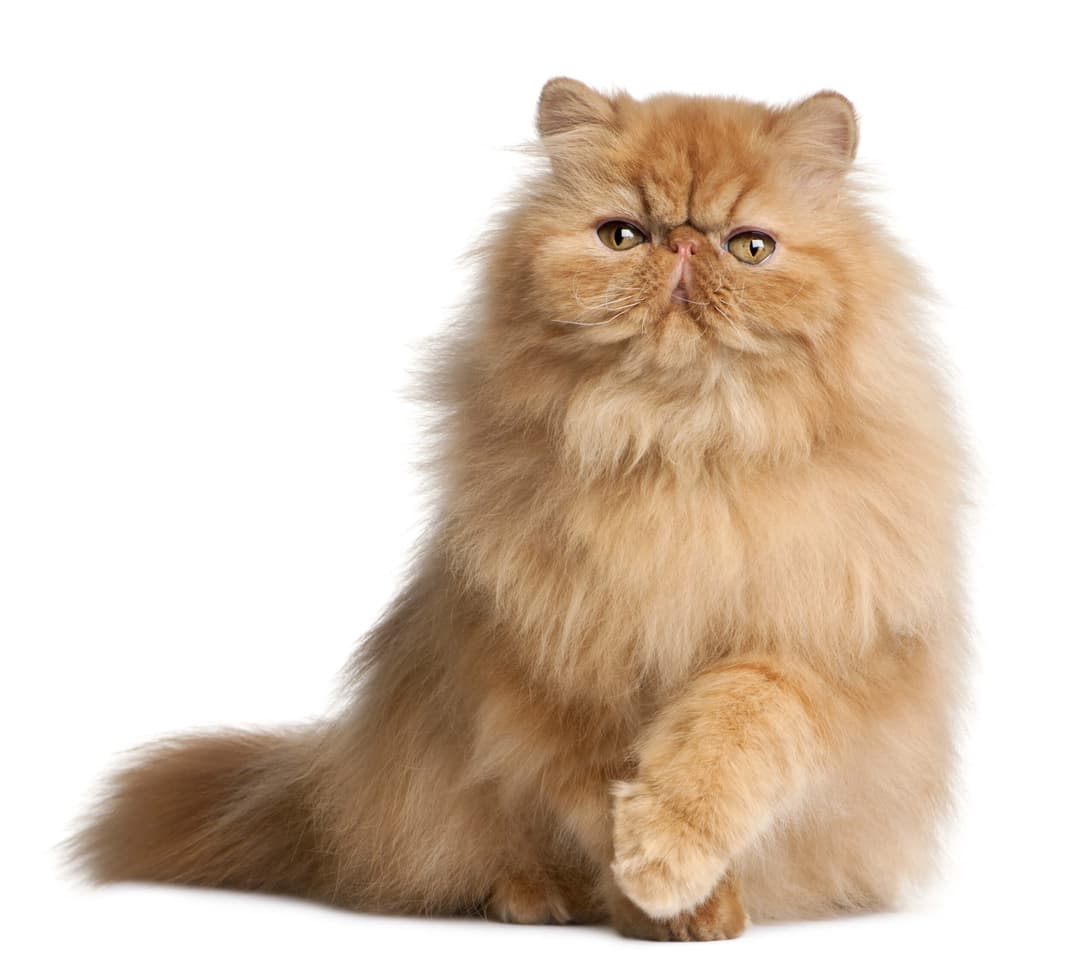Discover your cat's connection to this breed and 20 others


Discover your cat's connection to this breed and 20 others



Persians are one of the most popular breeds and easily recognizable by their fluffy longhaired coat, flat face, large cheeks, and expressive eyes. They like quiet time with their humans. While they prefer to lounge and rest, they are also known for their surprise bursts of playful activity.
The Persian cat is considered the "glamor puss" of the cat world. It is one of the world’s most popular breeds, with an exceptionally beautiful coat, adorably chubby cheeks, expressive eyes, and an affectionate personality. The modern-day breed comes in two types: show and traditional. The show Persian is characterized by certain exaggerated features, while the traditional Persian, or the "Doll Face", is the original version of the breed without exaggerated features. However, both have long and flowing coats that come in a rich array of colors and patterns.
Little is known about the history of this breed. Legend has it that the breed was introduced in Europe in the 1620s by Pietro Della Valle from Italy, who received the cat as a souvenir from Persia. At its height, Persia encompassed the areas of modern-day Iran, Egypt, Turkey, and parts of Afghanistan and Pakistan. These longhaired cats were considered precious cargo, traveling among the caravans that moved jewels and rare spices westward from Persia. Breeding of Persians likely began in Italy and France, with the practice quickly spreading to the rest of Europe. By the early 1900s, the Persian was introduced to the United States where it also gained enormous popularity.
Persians are gentle, friendly, and affectionate. These delightful creatures are not as active as other feline breeds. They would rather spend their time lounging in their favorite spot on the sofa. They don't require as much space for activity, so are well-suited apartments and smaller living spaces. Their long and luxurious coats require daily grooming to prevent knots and tangles, as well as to provide protection against troublesome hairballs.
Persians are associated with a range of health issues. They are a brachycephalic breed, and as such they can suffer from obstructed airways, tooth misalignment and crowding, tear duct blockages, and heart problems. Persians are also at a high risk for polycystic kidney disease, hypertrophic cardiomyopathy, progressive retinal atrophy, and feline lower urinary tract disease (FLUTD).
They love to win popularity contests. In 2015, Persian cats were ranked as the second most popular breed in the U.S. according to the Cat Fanciers’ Association, and in 2021 the fourth most popular after the Ragdoll, the Maine Coon, and the Exotic Shorthair, respectively.
Early “Best in Show” winners. In 1871, Persians were presented at the world’s very first cat show in London, alongside other exotic breeds such as Siamese, Scottish Wild, and Manx cats. They won “Best in Show”.
Famous “celebrity” Persians. Florence Nightingale had a large Persian named Mr. Bismarck. Marilyn Monroe owned a white Persian cat named Mitsou. And Raymond Chandler was a proud owner of a black Persian named Taki.
The muses of the cat world. The art world has long embraced its love for Persian cats. The world’s largest cat painting sold for more than $820,000 and it was entitled “My Wife’s Lovers”.
Well-known actors of the cat world. Persian cats are stars. They have all the elite qualities: they are luxurious, their demeanor is unmatchable and they walk with a pompous bearing. Two of our favorite Persian celebrities include “Duchess” from Disney’s The Aristocats, and “Snowbell” from Stuart Little. Duchess is a classy, white Persian who lives in a mansion with her owner, a butler, and her tiny kittens. She is voiced by Eva Gabor. Snowbell is a white Persian voiced by Nathan Lane, and film critics have claimed that Snowbell stole every scene in the movie.
The International Cat Association (TICA) “Introduction to the Persian”
Cat Fanciers' Association "About the Persian (and Himalayan)"
Recommended by top vets with decades of experience
21 breeds
64 genetic health markers
50 genetic trait markers
